Impressionism in music was a movement among various composers in Western classical music whose music focuses on mood and atmosphere, "conveying the moods and emotions aroused by the subject rather than a detailed tone‐picture". "Impressionism" is a philosophical and aesthetic term borrowed from late 19th-century French painting after Monet's Impression, Sunrise. Composers were labeled Impressionists by analogy to the Impressionist painters who use starkly contrasting colors, effect of light on an object, blurry foreground and background, flattening perspective, etc. to make the observer focus their attention on the overall impression.

Christa Päffgen, known by her stage name Nico, was a German singer, songwriter, actress, and model. Reviewer Richard Goldstein described her as "half goddess, half icicle" and wrote that her distinctive voice "sounds something like a cello getting up in the morning."

Diva Records was an American record label from 1925 to 1932 that sold records through W. T. Grant retail stores. It was a division of Columbia Records.
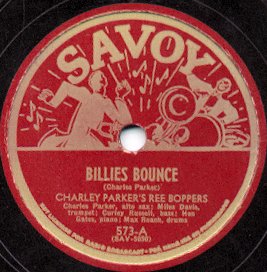
Savoy Records is an American record company and label established by Herman Lubinsky in 1942 in Newark, New Jersey. Savoy specialized in jazz, rhythm and blues, and gospel music.
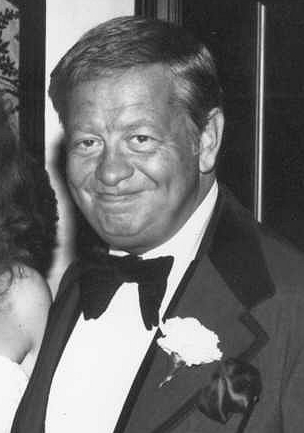
Melvin Howard Tormé, nicknamed "the Velvet Fog", was an American musician, singer, composer, arranger, drummer, actor, and author. He composed the music for "The Christmas Song" and co-wrote the lyrics with Bob Wells. Tormé won two Grammy Awards and was nominated a total of 14 times.

John Henry Hammond Jr. was an American record producer, civil rights activist, and music critic active from the 1930s to the early 1980s. In his service as a talent scout, Hammond became one of the most influential figures in 20th-century popular music. He is the father of blues musician John P. Hammond.

V-Disc was a record label that was formed in 1943 to provide records for U.S. military personnel. Captain Robert Vincent supervised the label from the Special Services division.

Fantasy Records is an American independent record label company founded by brothers Max and Sol Stanley Weiss in 1949. The early years of the company were dedicated to issuing recordings by jazz pianist Dave Brubeck, who was also one of its investors, but in more recent years the label has been known for its recordings of comedian Lenny Bruce, jazz pianist Vince Guaraldi, the last recordings made on the Wurlitzer organ in the San Francisco Fox Theatre before the theatre was demolished, organist Korla Pandit, the 1960s rock band Creedence Clearwater Revival, bandleader Woody Herman, and Disco/R&B singer Sylvester.

Benjamin Bernard Selvin was an American musician, bandleader, and record producer. He was known as the Dean of Recorded Music.

Walter Dewey Redman was an American saxophonist who performed free jazz as a bandleader and with Ornette Coleman and Keith Jarrett.
Robert "Bob" Thiele was an American record producer who worked on numerous classic jazz albums and record labels.
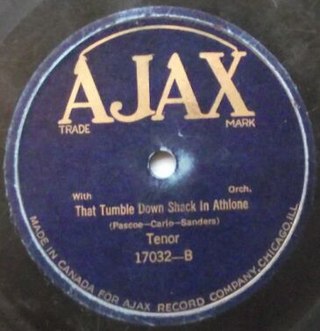
Ajax Records was a record company and label founded in 1921. Jazz and blues records were produced in New York City, with some in Montreal, and marketed via the Ajax Record Company of Chicago.

Fred Hall was an American pianist, bandleader and composer. Hall was born in New York City and began his musical career working as a song-plugger for various music publishers. As a bandleader Hall and his men recorded prolifically for many labels from 1925 onwards. Many recordings featured vocalist Arthur Fields with whom Hall enjoyed a lengthy partnership, co-writing scores of songs, the better known ones including Eleven More Months And Ten More Days and I Got A Code In My Dose. Hall and Fields also appeared together on the NBC radio show The Sunday Driver.
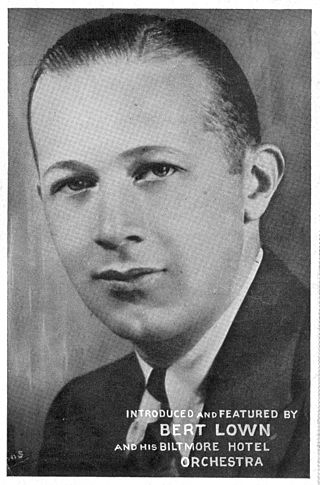
Bert Lown was an American violinist, orchestra leader, and songwriter.
India Navigation was an American record company and independent record label that specialized in avant-garde jazz in the 1970s and 1980s. It was founded by Bob Cummins, a corporate lawyer who helped jazz musicians with legal matters. Its catalogue included Arthur Blythe, Pharoah Sanders, Hamiet Bluiett, Chico Freeman, Cecil McBee, and the Revolutionary Ensemble. In addition to this, some recordings of minimal music, such as Arnold Dreyblatt, Phill Niblock and Joseph Celli, or Tom Johnson, also appeared.
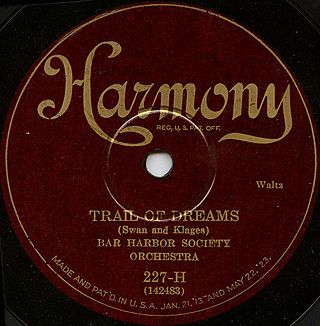
Harmony Records was a record label owned by Columbia Records that debuted in 1925.
"Black and Tan Fantasy" is a 1927 jazz composition by Duke Ellington and Bubber Miley. The song was recorded several times in 1927 for the Okeh, Victor and Brunswick record labels. The song was also featured in the 1929 short film Black and Tan. The Victor recording is an inductee of the Grammy Hall of Fame.

Crown Records was a record company and dime-store label that existed from 1930 to 1933 in New York City. Its catalogue included music by Eubie Blake and Fletcher Henderson. Known as the label offering "Two Hits for Two Bits" proudly printed on their sleeves, Crown's discs sold for 25 cents.
Laughter in Hell is a 1933 American Pre-Code drama film directed by Edward L. Cahn and starring Pat O'Brien. The film's title was typical of the sensationalistic titles of many Pre-Code films. Adapted from the 1932 novel of the same name by Jim Tully, the film was inspired in part by I Am a Fugitive from a Chain Gang and was part of a series of films depicting men in chain gangs following the success of that film. O'Brien plays a railroad engineer who kills his wife and her lover in a jealous rage and is sent to prison. The movie received a mixed review in The New York Times upon its release. Although long considered lost, the film was recently preserved and was screened at the American Cinematheque in Hollywood, CA in October 2012.
A Wonderful Life is a 1951 black-and-white short drama film produced by the National Council of Churches of Christ and distributed by the Protestant Film Commission. It is an adaptation of Frank Capra's 1946 film It's a Wonderful Life for the Christian film industry. Directed by William Beaudine, it stars James Dunn, Allene Roberts, and Arthur Shields. The film retells the life of an ordinary Christian family man in flashback as his family and friends remember all the good he did through his devotion to church and community. The film emphasizes the power of faith, love, and community service for living a meaningful life, together with the message that people do not realize the true worth of others until after they have died. The film was not released commercially, but was distributed to some 30,000 churches throughout the United States and Canada.














